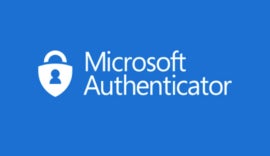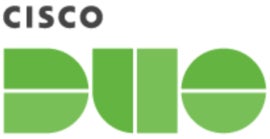- Best for a ‘big-name’ option: Microsoft Authenticator
- Best for backups and multiple devices: Twilio Authy
- Best for enterprises: Cisco Duo
- :
- :
Multifactor authentication (MFA) is one of the most effective ways to enhance security, and with the rise of apps, such as Google Authenticator, the authentication method has become easier to deploy.
However, whether due to privacy concerns, a lack of updates (especially when it comes to open-source options), or preference, many choose to avoid Google Authenticator.
Fortunately, there’s no shortage of competitors on the market, each with distinct advantages. Here are some of the top Google Authenticator alternatives.
Top Google Authenticator alternatives: Comparison table
| Product name | Pricing | Key Features |
|---|---|---|
| Microsoft Authenticator: Best for a “big-name” option | Free | Two-factor authentication (2FA)/MFA support Passwordless sign-in Push notifications |
| Twilio Authy: Best for backups and multiple devices | 5 cents per successful verification plus standard fees per channel | 2FA/MFA support Multidevice sync Soft token and backup Time-based one-time password (TOTP) |
| Cisco Duo: Best for enterprises | Free up to 10 users Essentials: $3 per user, per month Advantage: $6 per user, per month Premium: $9 per user, per month | Risk-based authentication Single sign-on (SSO) Passwordless authentication Complete device visibility |
| Yubico Security Key: Best for a physical security key | Yubico security keys are available in different models and configurations, each with varying prices. The pricing depends on factors like the model, connectivity―such as USB-A, USB-C, and near-field communication (NFC)―and features of the security key | 2FA support FIDO2 and U2F support Multiprotocol support Physical security |
| FreeOTP: Best for an open-source alternative | Free | 2FA Open-source software TOTP Hash-based message authentication code (HMAC)-based, one-time password (HOTP) |
Microsoft Authenticator: Best for a ‘big-name’ option

Available for both Android and iOS, Microsoft Authenticator offers a similar experience to Google’s, working with both Microsoft and non-Microsoft accounts.
No passwords are required. Accounts are accessible using a PIN code, fingerprint, or face recognition. There’s also the option to backup credentials to the cloud, but this requires a personal Microsoft account, with iOS users also needing to link to an iCloud account.
Recent notable improvements Microsoft has made include the ability to now display the name of the service, website, or application being accessed. This serves as an additional layer of security you can use to confirm the authenticity of an MFA request.
Why we chose Microsoft Authenticator
As a large established company, Microsoft can provide a robust level of support for users who have questions or issues with the product. It also can provide a consistent level of updates to provide new features and patch bugs with the software.
Pricing
- Free and available for download from Apple Store or Google Play Store.
Features
- Provides 2FA.
- Provides passwordless sign-in.
- Supports push notifications.
- Supports MFA.
Pros
- 2FA and MFA provide an extra layer of security.
- Easy to use with Microsoft accounts and other supported services.
- User-friendly interface with push notification approval for MFA.
- Supports various authentication methods, including biometrics and phone sign-in.
Cons
- Not all services support Microsoft Authentication for 2FA or MFA, which limits its usage.
- Users must have the app installed on their mobile device to use 2FA or MFA, which creates complications if the device is lost or unavailable.
Twilio Authy: Best for backups and multiple devices

Although it isn’t as big or widely known as Google or Microsoft, Twilio’s Authy app is one of the most impressive and feature-rich Google Authenticator alternatives. Twilio takes pride in the fact that its app can be used anywhere Google Authenticator can be used, meaning that those making the switch won’t hit any unexpected compatibility issues.
It offers its own distinct advantages with some major quality-of-life features that make it easier to securely access your data. The app is available on multiple platforms, including iOS, Android, and Chrome, with the ability to synchronize your 2FA tokens across them so they’re always there when you need them. You’re also able to view and edit your devices at any time and create securely encrypted backups in case any of them are ever lost or stolen.
Twilio provides regular updates for its Authy app, with the most recent improvement involving the delivery method of one-time passwords (OTPs). Beginning in February 2024, the company stated that OTPs would be sent via rich communication services (RCS), a more secure method than the default short messaging (SMS) channel, as it’s able to utilize Wi-Fi and cellular.
Why we chose Twilio Authy
Depending on the MFA solution, users could be locked out of their accounts if they lose their phone or other device. Twilio, however, allows users to back up all 2FA tokens and restore them in the event that they lose their primary devices. Twilio also provides features to manage multiple devices, including the ability to sync and disable future installations for added security.
Pricing
- Twilio charges 5 cents per successful verification plus standard fees per channel for its basic version that includes 2FA, but custom pricing is offered for more advanced features.
Features
- 2FA.
- Multidevice sync.
- Soft token and backup.
- MFA.
- TOTP.
Pros
- 2FA and MFA support for various authentication methods.
- Soft token feature eliminates the need for a physical hardware token.
- Easy setup process and user-friendly interface.
- Multidevice sync means users can access 2FA codes on different devices.
Cons
- Advanced features and customization require the paid plan.
Cisco Duo: Best for enterprises

Some may find Cisco’s name a somewhat surprising inclusion on this list as many associate them more with routers, internet phone systems, and other hardware. It is no slouch on the software side though, with Duo offering a very strong enterprise-level Google Authenticator alternative.
As part of its newest batch of updates, notable additions include a public preview for Verified Duo Push. This is a feature that provides a greater level of security by asking users for an additional verification code for push requests. Codes sent via SMS text message have also been streamlined as codes are now machine-readable to allow mobile browsers to complete authentication without additional user intervention.
This MFA product comes as part of a suite of software, which can also be used to set up and manage other useful information technology (IT) functionality, such as remote access and access control. This feature is targeted at commercial customers, however, and the pricing reflects that.
Although most alternatives to Google Authenticator are completely free but potentially relatively limited in terms of options, Duo can offer you a lot if you’re willing to pay for it. The free option, which Cisco advises is aimed toward individuals and very small teams, is most comparable to what Google offers and will be enough for many, although it faces competition from the likes of Authy. If you want desktop access or many of the more specialized features Duo offers, or you have more than 10 users, you’ll need to pay per user. Prices start at $3 per user, per month. That rises to $9 or potentially even higher depending on exactly which features you need.
Since Microsoft Authenticator is also an alternative we identified, you can learn more in our article comparing Cisco Duo vs Microsoft Authenticator.
Why we chose Cisco Duo
Implementing MFA for enterprises and large businesses can be complex. However, Cisco is an excellent option to consider because of its Duo Policy Engine. This tool allows organizations to manage access across different users and levels of the company. Permissions and policies can also be customized based on user locations, remembered devices, device health, and more.
Pricing
- Free up to 10 users, Essentials is $3 per user, per month, Advantage is $6 per user, per month, and Premium is $9 per user, per month.
Features
- Risk-based authentication.
- SSO.
- Passwordless authentication.
- Complete device visibility.
Pros
- Comprehensive package for complete zero-trust access.
- Virtual private network (VPN)-less remote access to private resources.
- User-friendly and easy-to-use interface for both end users and administrators.
- Complete device trust with an endpoint protection check.
Cons
- Expensive for organizations with a large number of users seeking to use advanced features.
- May require additional setup and configuration, which could be challenging for nontechnical users.


